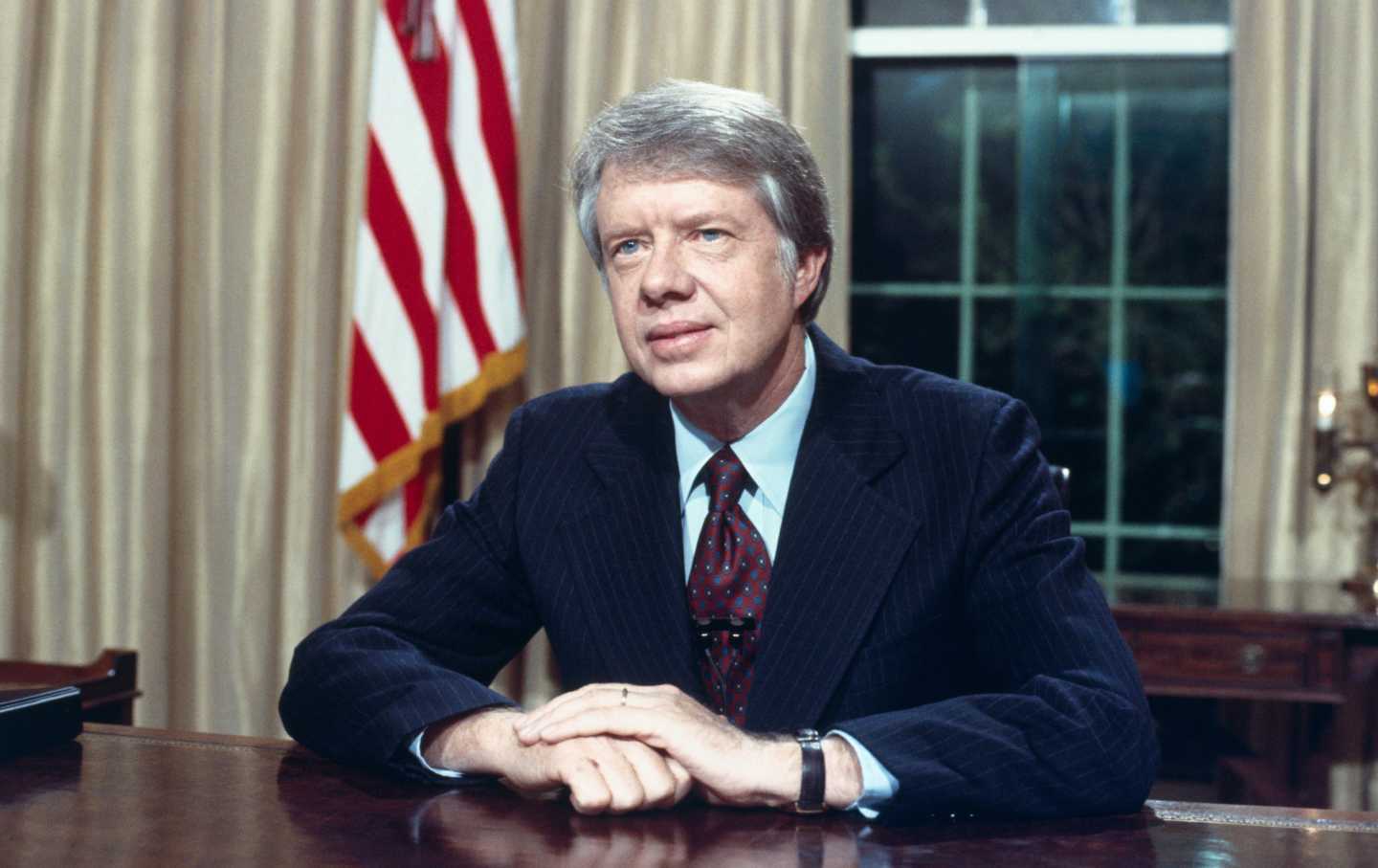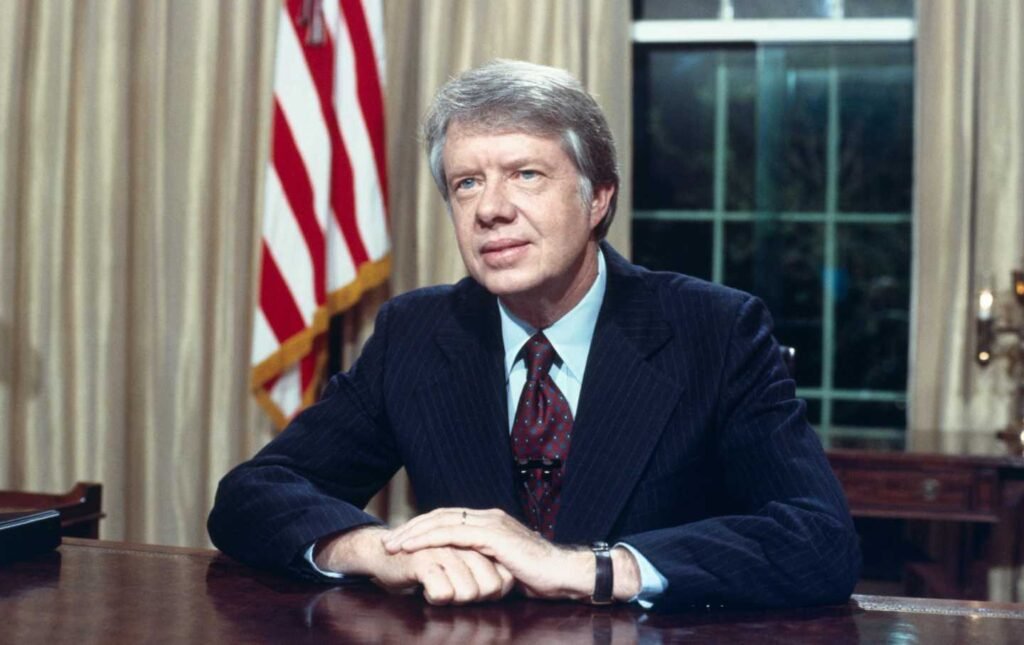Remembering Carter as we prepare for Trump’s second inauguration.

My first presidential vote was for Jimmy Carter in the New York primary in 1976. Carter finished fourth behind Senators Henry Jackson and Maurice Udall and a number of non-binding delegates. Still, I bet two friends that the governor of Georgia would win the nomination and win in November—the last political bet I ever won.
What made me so confident? Above all, Carter’s outspoken rejection of racism is a turn that, as someone born and raised in the South, he felt the country desperately needed. But also a turn, which the country seemed to be longing for. Carter lost his first bid for governor of Georgia in 1966. to the great segregationist Lester Maddox, and in the second attempt he tried to say as little as possible about race or even campaign too hard for the black vote. So it made headlines when, during his inaugural address, he announced:
I sincerely tell you that the time of discrimination is over. No poor, rural, weak, or black person should ever have to bear the additional burden of being denied access to education, employment, or basic justice.
Carter’s record as a populist governor, combined with his outspoken commitment to racial justice, gave him an appeal that no other candidate could match. But will coastal liberals even give a man who sounds like him and who described himself as a “peanut farmer” a chance? Winning the Iowa caucuses gave him credibility, while victories in Pennsylvania (which forced Jackson to drop out) and Wisconsin (where he edged Udall) gave him the nomination—and, ultimately, victory over Republicans still suffering from Watergate and Vietnam.
Carter’s tenure was mixed: he normalized relations with China, negotiated strategic arms limitations with the Soviet Union, and brokered the Camp David Accords between Israel and Egypt. He also kept his campaign promise to grant a full and unconditional pardon to Vietnam War veterans. But he focused on reducing the federal deficit – at the time just $79 billion (compared to $1.9 trillion in 2024)—limited new initiatives, while his administration was also plagued by persistent stagflation (the politically lethal combination of high inflation and low growth). After leaving office, as we were reminded after his death on December 29, Carter became a superstar among former presidents, fighting for peace from South Africa to North Korea, opposing Israeli apartheid and remaining a staunch champion of voting rights and human rights at home and abroad. (Readers who want more details should consult Nation a sympathetic biography of editorial board member Kai Byrd Ejection.)
This month will see the inauguration of another outsider president whose first-term ambitions, like Carter’s, often ran aground on inexperience. At 78, Donald Trump will be the oldest person ever inaugurated, and he’s unlikely to have a very long post-White House career. But this time, he takes office not as a political novice, but with a veteran’s awareness of the levers of power in Washington and how they can be used to achieve his goals.
Here on nation, we do not pretend to be neutral. Anytime Trump restricts the rights of women, people of color, or any US citizen, whether native-born or naturalized, we will stand up to him. Because we will resist any attempt to limit our civil liberties, shred the social safety net, rob the poor to fund tax breaks for the rich, or turn our flawed republic into an autocracy. But these are fundamental differences, and when Trump pursues goals we would otherwise support—reducing the influence of Big Ag on farmers or Big Pharma on our health care, seeking peace in Korea, or seeking to negotiate an end to the war in Ukraine—we are not let’s oppose them simply because he is in office.
Meanwhile, as Ethan Iverson’s cover reminds us, the country’s cultural life continues. Also Sam Adler-Bell in new Bob Dylan biopic, Bijan Steven in Jamie X’s dance music and Jess Cotton in Olga Takarchuk’s Magic Mountain. To be sure, politics and culture are not so easily separated, as Daniel Besner’s appreciation of Noam Chomsky and Hussein Omar’s essay on the poet Fadi Juda highlight. Not to mention our usual array of stellar columnists and commentators; writer Mohamed Mhavish’s harrowing account of being buried by Israel; cartoonist Steve Brodner’s take on the new administration; and much, much more.
So stay with us. It can be a long four years.

DD Guttenplan
Editor


